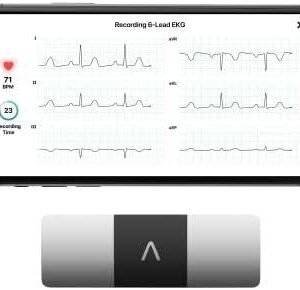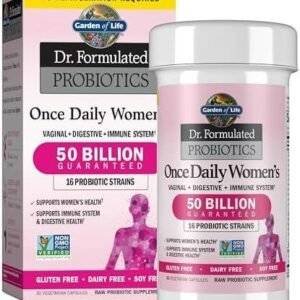Zinc, a trace mineral often overshadowed by macronutrients and more prominent vitamins, plays an indispensable role in the intricate processes of muscle growth and recovery. Despite its understated status, zinc is a critical cofactor for various enzymatic reactions that underpin protein synthesis and hormone regulation, both of which are vital for optimal muscle development. Recent research highlights the mineral’s influence on immune function, metabolic processes, and cell signaling pathways, each of which contributes significantly to post-exercise recovery. As fitness enthusiasts and athletes alike seek to maximize their performance and minimize downtime, understanding the multifaceted roles of zinc may inform nutritional strategies and supplementation practices. This article delves into the biochemical mechanisms through which zinc exerts its effects on muscle physiology, assesses the implications of zinc deficiency on athletic performance, and examines how adequate zinc intake can foster resilience and growth in muscle tissue.
Table of Contents
- The Physiological Mechanisms of Zinc in Muscle Protein Synthesis
- Zinc Deficiency and Its Impact on Exercise Performance and Recovery
- Optimizing Zinc Intake: Dietary Sources and Supplementation Guidelines
- The Interplay of Zinc with Other Nutrients in Supporting Muscular Health
- The Conclusion
The Physiological Mechanisms of Zinc in Muscle Protein Synthesis
The physiological role of zinc in muscle protein synthesis is multifaceted, influencing various biological pathways critical for muscle growth and repair. Zinc acts as a cofactor for numerous enzymes involved in protein metabolism, enhancing the efficiency of amino acid utilization. This trace element is essential for the activity of mTOR (mechanistic target of rapamycin), a key regulator of cell growth and protein synthesis. A heightened mTOR activity facilitates the formation of new muscle proteins by stimulating ribosome biogenesis and increasing the translation of mRNA into proteins. Consequently, zinc deficiency can lead to reduced mTOR signaling, impairing anabolic processes and potentially stunting muscle hypertrophy.
Moreover, zinc plays a significant role in maintaining anabolic hormonal balance, particularly testosterone levels, which are pivotal for muscle repair and growth. Adequate levels of zinc contribute to optimal insulin response, promoting nutrient uptake into muscle cells post-exercise. The following list highlights some of the key mechanisms through which zinc supports muscle protein synthesis:
- Enzyme Activation: Supports over 300 enzymatic reactions crucial for muscle metabolism.
- DNA and RNA Synthesis: Facilitates the transcription and translation necessary for protein synthesis.
- Antioxidant Properties: Reduces oxidative stress, enabling efficient recovery and adaptation.
Additionally, a deficiency in zinc may adversely affect muscle recovery through its influence on inflammatory processes. Research indicates that adequate zinc levels help modulate inflammation after intense physical activity, thereby reducing muscle soreness and accelerating recovery. The interplay between zinc and other micronutrients further emphasizes its importance; for instance, zinc works synergistically with magnesium and vitamin D in supporting muscle health. The table below summarizes the contribution of zinc alongside these essential nutrients:
| Nutrient | Role in Muscle Health |
|---|---|
| Zinc | Boosts protein synthesis and supports hormonal balance |
| Magnesium | Facilitates muscular contraction and relaxation |
| Vitamin D | Enhances calcium absorption, crucial for muscle function |
Zinc Deficiency and Its Impact on Exercise Performance and Recovery
Zinc deficiency can significantly hinder both exercise performance and recovery processes, affecting athletes at various levels. As a trace mineral, zinc plays a pivotal role in numerous physiological functions, including protein synthesis, cellular repair, and immune function. When zinc levels drop, the body’s capability to maintain muscle integrity and expedite recovery after intense workouts is compromised. Key symptoms associated with zinc deficiency that may impact exercise include:
- Increased Fatigue: Low zinc levels can lead to decreased energy levels, making it challenging to sustain prolonged physical activity.
- Weakened Immune System: Athletes can experience frequent illnesses, which can interrupt training cycles and performance.
- Decreased Muscle Strength: Insufficient zinc can impair muscle repair and growth, limiting strength gains and overall performance.
Moreover, zinc’s role in reducing oxidative stress and inflammation is crucial for effective recovery. Without adequate levels, the body may struggle to repair micro-tears in muscle tissue post-exercise. This delay in recovery can lead to prolonged soreness, diminished exercise capacity, and increased risk of injury. A comparison of performance metrics in athletes with sufficient versus deficient zinc levels reveals a stark contrast:
| Performance Metric | Optimal Zinc Levels | Zinc Deficient |
|---|---|---|
| Muscle Recovery Time | 24-48 hours | 72 hours or more |
| Strength Gains (per month) | 5-10% | 1-3% |
| Immune Function Score | High | Low |
To ensure optimal exercise performance and recovery, athletes should prioritize their zinc intake through dietary sources such as lean meats, shellfish, legumes, nuts, and whole grains. Incorporating these foods into a balanced diet can help maintain adequate zinc levels and support overall athletic success.
Optimizing Zinc Intake: Dietary Sources and Supplementation Guidelines
To achieve optimal muscle growth and recovery, incorporating a variety of dietary sources of zinc is essential. Foods that are rich in zinc can significantly bolster your intake, enhancing your body’s regenerative capabilities post-exercise. Some of the most excellent sources of zinc include:
- Meat: Beef, lamb, and pork are among the richest sources.
- Shellfish: Oysters provide one of the highest zinc concentrations.
- Nuts and Seeds: Pumpkin seeds and cashews offer plant-based options.
- Dairy: Milk and yogurt are beneficial for those incorporating dairy into their diet.
- Whole Grains: Bread and cereals, especially those fortified with zinc, can help meet daily requirements.
For individuals who may struggle to get adequate zinc from food sources alone, supplementation can be a practical alternative. However, it’s crucial to follow appropriate guidelines to avoid excess intake, which can lead to adverse effects. Recommended practices include:
- Consultation: Always speak with a healthcare professional before starting any supplementation.
- Dosage: Aim for a daily dose of 11 mg for men and 8 mg for women, adjusting based on specific nutritional needs.
- Form: Opt for zinc picolinate or zinc citrate, as they are generally better absorbed by the body.
- Timing: Taking zinc on an empty stomach can enhance absorption, but if stomach irritation occurs, consider taking it with a meal.
The Interplay of Zinc with Other Nutrients in Supporting Muscular Health
The relationship between zinc and other essential nutrients is a crucial aspect of supporting muscular health. Zinc plays a vital role in various metabolic processes, including protein synthesis, hormone regulation, and immune function. When considered alongside nutrients like magnesium, vitamin D, and omega-3 fatty acids, the synergy enhances the benefits for muscle growth and recovery. For instance, magnesium aids in the enzymatic reactions necessary for muscle contraction and energy production, while vitamin D facilitates calcium absorption, which is fundamental for muscle function. Likewise, omega-3 fatty acids reduce inflammation and may help improve overall recovery times.
The interplay of these nutrients can be seen in their combined effects on muscle protein synthesis. A deficiency or imbalance in one can adversely affect the efficacy of the others. The following table summarizes some of these essential nutrients and their interactions with zinc:
| Nutrient | Role in Muscle Health | Interaction with Zinc |
|---|---|---|
| Magnesium | Aids energy production and muscle contraction | Supports zinc absorption and utilization |
| Vitamin D | Enhances calcium absorption | Facilitates zinc’s role in hormone regulation |
| Omega-3 Fatty Acids | Reduces inflammation, supports recovery | Boosts overall nutrient absorption, including zinc |
Furthermore, the timing of nutrient intake can significantly impact their roles in muscle recovery and growth. Consuming a balanced meal that includes zinc and its synergistic nutrients shortly post-exercise optimizes recovery and enhances muscle repair mechanisms. Integrating a wide variety of foods rich in these nutrients—such as nuts, seeds, leafy greens, fish, and dairy—can help ensure that athletes and fitness enthusiasts maintain ideal levels for peak muscular health. Continued research into these interactions will deepen our understanding of dietary strategies for optimizing athletic performance.
The Conclusion
the multifaceted role of zinc in muscle growth and recovery cannot be overstated. This essential trace mineral is not merely a supplementary addition to the athlete’s regimen; rather, it serves as a critical component in various physiological processes, including protein synthesis, immune function, and cellular repair. Research underscores the necessity of adequate zinc levels to optimize performance and recovery, especially in individuals engaged in rigorous training programs.
As we continue to explore the intricate biochemical pathways that underpin muscle physiology, it becomes increasingly clear that micronutrients like zinc play a significant role in achieving athletic excellence. For those seeking to maximize their muscle development and ensure effective recovery, maintaining sufficient zinc status through dietary sources or supplementation is paramount.
Future inquiries into zinc’s interactions with other nutrients and its long-term effects on muscle physiology will not only deepen our understanding but also pave the way for more personalized nutritional strategies in sports medicine. Ultimately, acknowledging and addressing the critical role of zinc can empower athletes and fitness enthusiasts alike to enhance their physical performance and overall health outcomes.





